What's The Alternative?
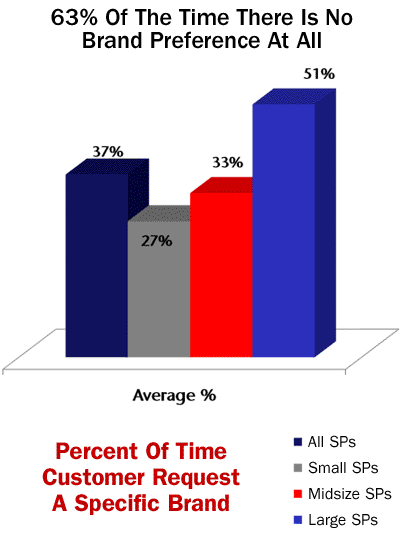
As the trusted IT advisor for businesses, solution providers are deciding which products and solutions will deliver the biggest bang for the IT buck. Those solution providers not looking beyond the big brand are doing themselves and their clients a disservice. Nearly two-thirds of the time, customers have no brand preference.
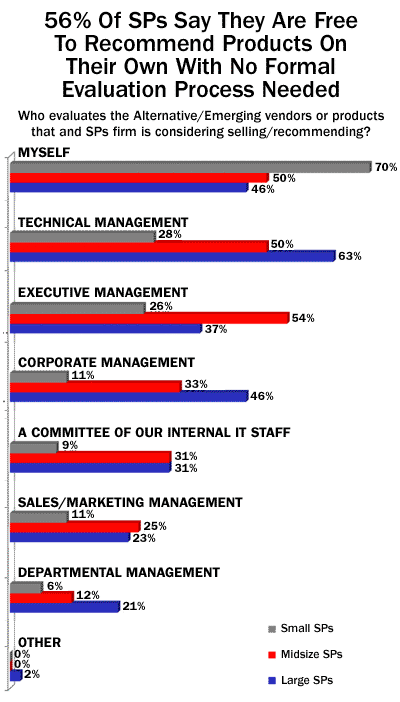
Over half of solution providers say they are free to recommend products without a formal evaluation process. Big brands not a requirement. Customers trust VARs to determine the products and solutions that will best suit the needs of the business.
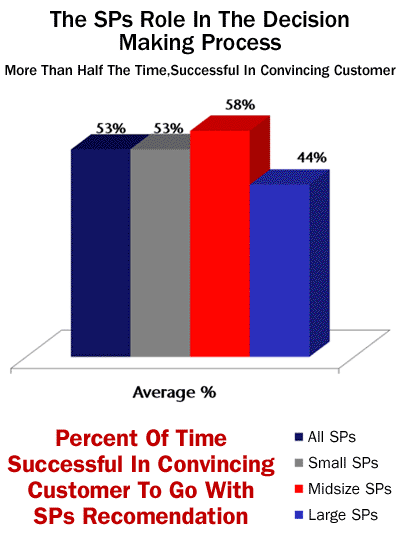
A record number of businesses are putting their IT fate in the hands of solution providers who are using their technology expertise to separate the wheat from the chaff.
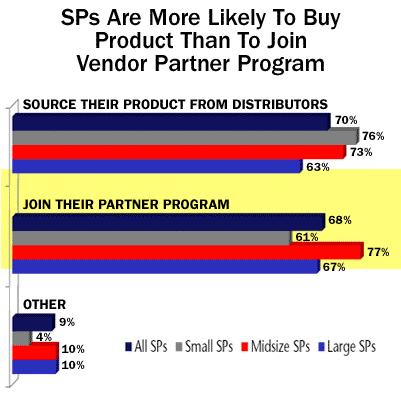
You don't need to be a certified partner to recommend an alternative product. In fact, solution providers say they are more likely to buy a single product than to join a vendor's partner program as they seek out the very best products and solutions for their clients.
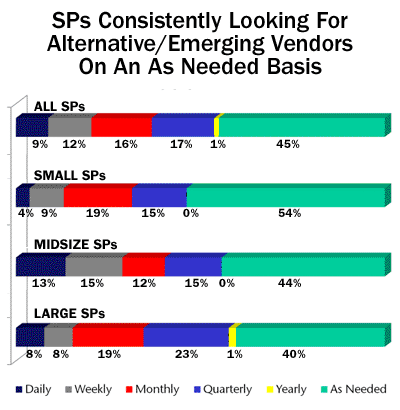
Solution providers say they are constantly on the prowl for alternative vendors. Solution providers not doing some comparative IT shopping are missing out on driving bottom line benefits for themselves and their clients.
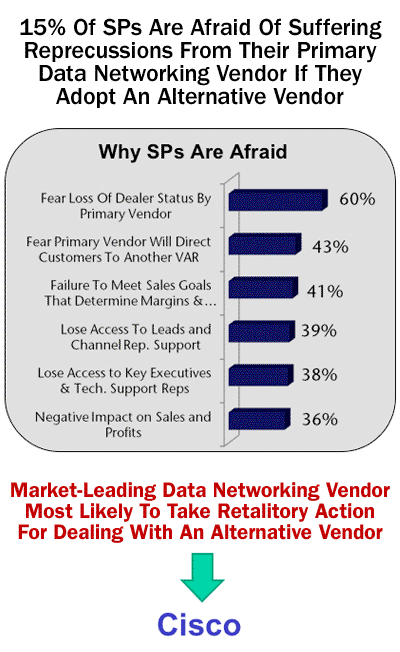
Fear Factor: Some solution providers are afraid to seek out alternative vendors because they fear repercussions from their primary vendors, from loss of dealer status to the vendor directing business to another VAR. A number of VARs fear reprisal from networking market leader Cisco.
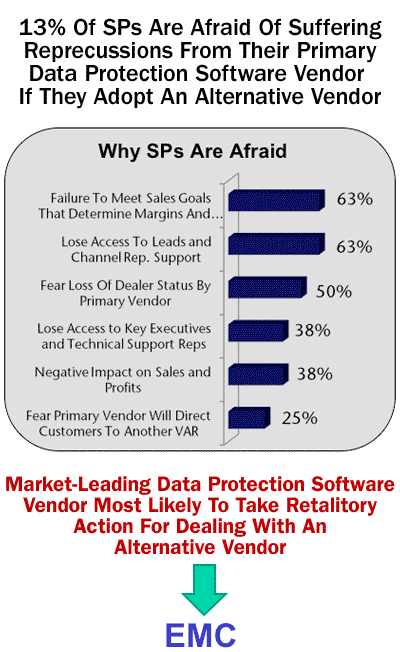
In the data protection software market, EMC is cited time and time again by solution providers as the market leader. And even though EMC is winning plaudits for its channel program, some VARs fear they will see EMC turn from Mr. Hyde to Dr. Jekyll if they add an EMC alternative.
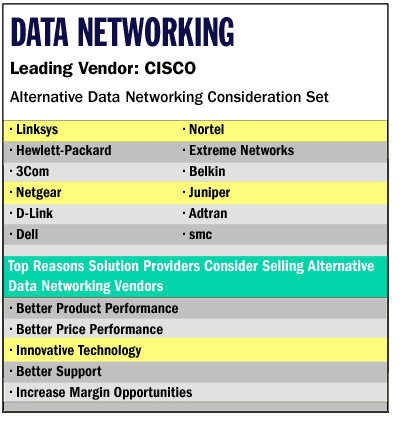
There are more alternative vendors than ever before. This year's Alternatives study features 144 companies compared with 96 last year. One alternative up and comer: Juniper which recently released an impressive array of enterprise switches in the networking market.
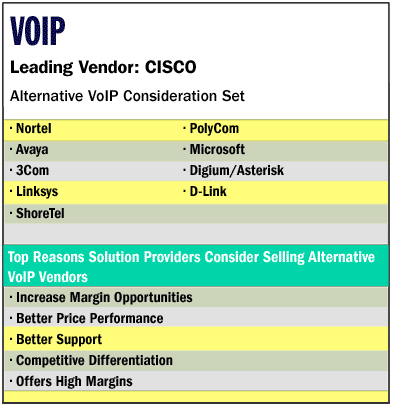
It's hard to believe Microsoft could ever be an "alternative vendor", but Microsoft's entry into the VoIP market is only a few months old, so the Redmond, Wash.-based company still has much to prove to solution providers.
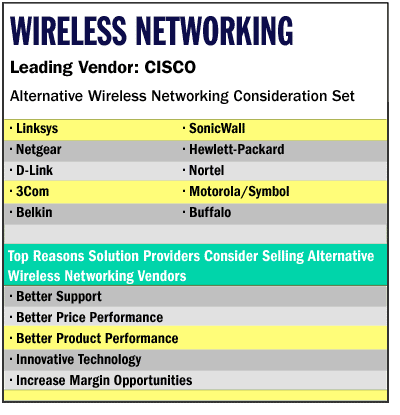
SonicWall, one of the most impressive alternative vendors, is beating Cisco hands down by offering a single unified threat management appliance that delivers more bang for the buck for cost conscious SMB clients. It's not unusual for a comparable Cisco solution to be two to three times more expensive than the SonicWall solution.
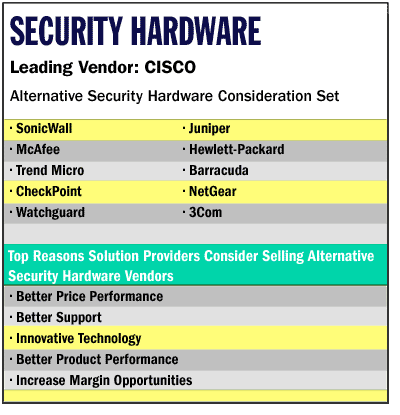
Alternative vendors are on the rise in the security software market. Solution providers adding an alternative with innovative new technology have a lot of room to drive ROI gains for their clients.
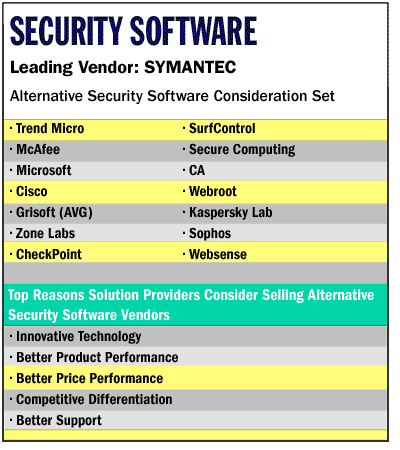
Cisco may be the big guy in security hardware, but Symantec still rules in the security software market.
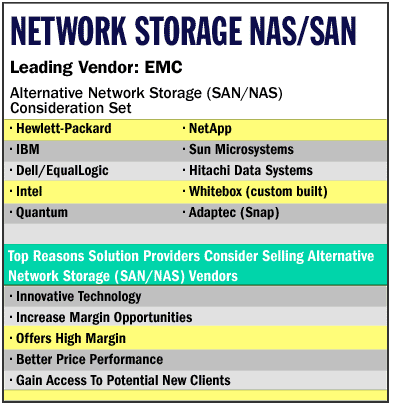
For your customers' storage needs, instead of a premade big brand product, why not consider a custom built "white box" product tailored to the clients' specifications?
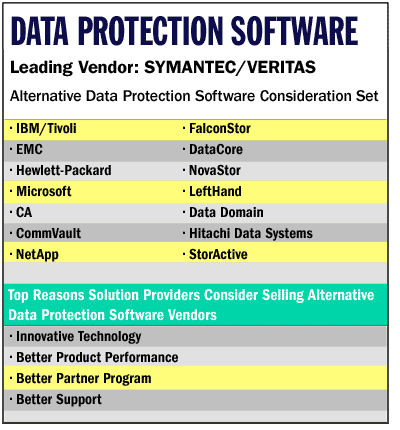
Alternative vendors are often hungrier than the market leader and therefore willing to go the extra distance to deliver better partner program terms and conditions and support than the big boys.
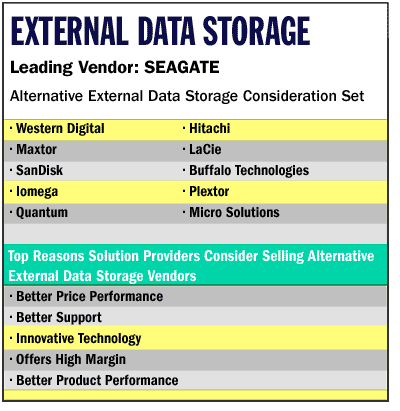
Hitachi is developing the technology to build 4-terabyte drives. Now that's a lot of storage!
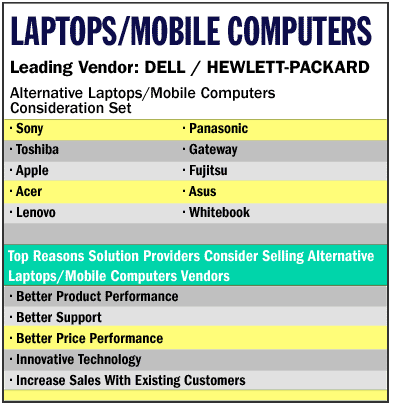
There's practically a laptop for every need these days. For example, you've got MacBook Air from Apple for clients with limited space, and Panasonic ToughBook for customers who want a notebook that will last through a series of natural disasters.
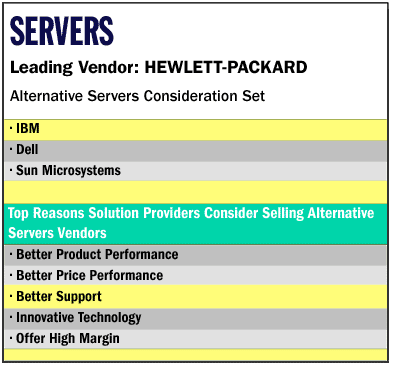
Dell has incorporated a lot of green technology and power-saving measures into its new PowerEdge servers, so they're a good recommendation for environmentally conscious clients.
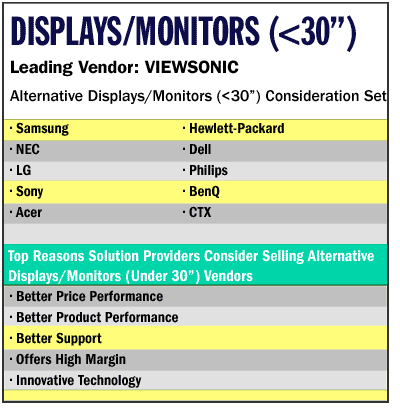
The fast changing intensely competitive display market is one area where solution providers would be wise to do some no nonsense price performance comparisons.
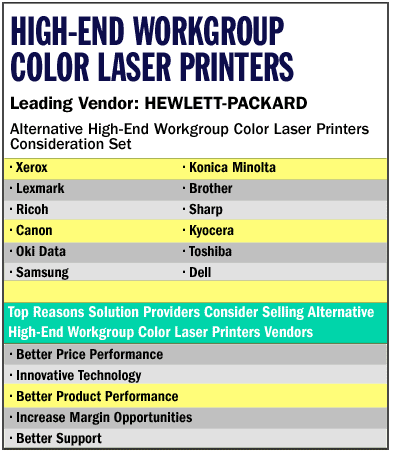
"Better product performance" is one of the top reasons VARs go with alternative printer vendors.

VMware may be the standard, but Citrix is a hot up and comer with its XenServer 4.1.
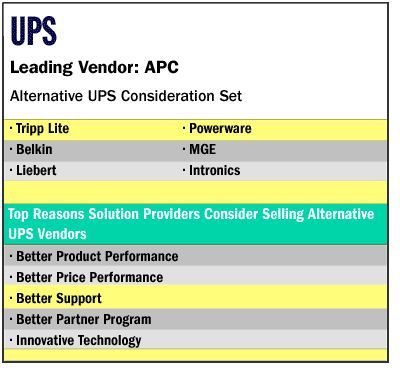
"Better support" is one of the top reasons solution providers go with alternative UPS vendors.